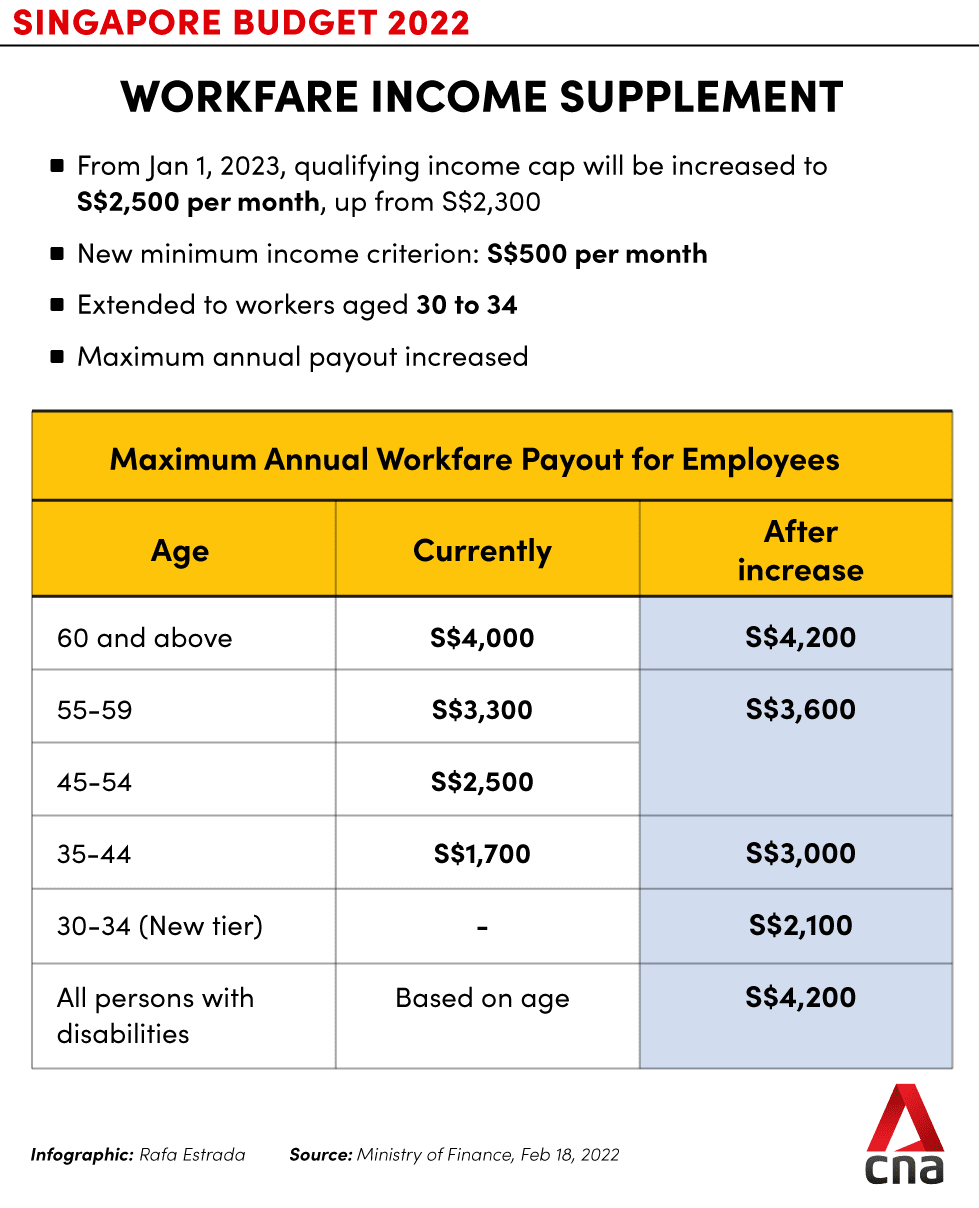Budget 2022: Government to spend S$9 billion over 5 years on more support for lower-wage workers
SINGAPORE: The Government will spend S$9 billion over five years to uplift and support lower-wage workers, announced Finance Minister Lawrence Wong in his Budget speech on Friday (Feb 18).
The expenditure will go to enhancing the Workfare Income Supplement scheme and a new Progressive Wage Credit Scheme to provide transitional support to businesses as they move towards progressive wages.
Speaking at the unveiling of Budget 2022 in Parliament, Mr Wong said that the expanded Workfare Income Supplement scheme will benefit more than half a million workers.
The scheme targets Singaporean workers whose earnings are in the bottom 20 per cent. It is paid in the form of both Central Provident Fund top-ups and cash to supplement the worker's income.
From next year, the scheme’s qualifying income cap will be raised from S$2,300 to S$2,500 a month. It will also be extended to younger workers aged 30 to 34, who will receive a maximum annual payout of S$2,100.
This will allow them to start saving for housing and retirement earlier in their careers, Mr Wong said.
The scheme’s payouts will also be raised. Those aged 35 to 44 will receive a maximum annual payout of S$3,000, while those aged 45 to 59 will receive a maximum annual payout of S$3,600.
Those aged 60 and above will receive the highest maximum payout tier of S$4,200 annually. This maximum payout tier will also be extended to all persons with disabilities, regardless of their age.
A minimum income criterion of S$500 per month will be introduced to encourage part-timers and casual workers to take up regular, full-time work, added Mr Wong.

GOVERNMENT CO-FUNDING WAGE INCREASES
Mr Wong also reiterated that the Government has accepted and will implement the recommendations of the Tripartite Workgroup on Lower-Wage Workers.
As previously announced, the Progressive Wage Model will be extended to various sectors such as retail, food services and waste management in the coming years, he said.
Other moves include requiring companies employing foreign workers to pay all local employees at least a Local Qualifying Salary, currently set at S$1,400 per month. A Progressive Wage Mark will also be launched to accredit firms that pay progressive wages and the Local Qualifying Salary.
“All of us – businesses, consumers and taxpayers – will have to do our part and contribute to uplifting our lower-wage workers,” Mr Wong said.
However, he acknowledged that firms will need time to adjust to these changes, which were announced at last year’s National Day Rally.
“Some have locked in long-term contracts based on certain wage assumptions and now face higher manpower costs. Others may find it difficult to raise prices in the short term to support the wage increases.”
A new Progressive Wage Credit Scheme will provide “transitional support” for businesses as they adjust, he said.
Under the scheme, the Government will co-fund the wage increases of lower-wage workers between 2022 and 2026. For workers earning up to S$2,500, the co-funding rate will be 50 per cent in the first two years, 30 per cent in the next two years, before tapering to 15 per cent in 2026.
There will also be some support for workers earning above S$2,500 and up to S$3,000, at a lower co-funding ratio.
A Progressive Wage Credit Scheme fund will be set up this year, starting with a S$2 billion injection. This will provide certainty of funding for wage increases over the next five years, Mr Wong said.
“Our moves on progressive wages will cover around 94 per cent of our full-time lower-wage workers. The enhanced Workfare will provide further support to all eligible Singaporean lower-wage workers.”
With these moves, incomes of lower-wage workers are expected to grow faster than the median wage growth over the next decade, he said.
“So as our economy grows and society progresses, we will reduce income disparities in our workforce.”















